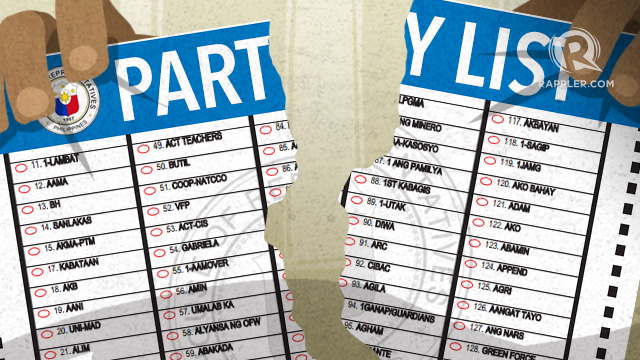 Maverick President Rodrigo Duterte has again surprised political pundits when he openly announced his intention to abolish the party-list system as part of the anticipated overhaul of the Constitution.
Maverick President Rodrigo Duterte has again surprised political pundits when he openly announced his intention to abolish the party-list system as part of the anticipated overhaul of the Constitution.
The president explained that the system has, through the years, made a “mockery of the law,” pointing to the proliferation of rich party-list legislators from traditional political families who masquerade as representatives of sometimes questionable sectors.
We have to give credit to President Duterte for reopening the floodgates of debate over the party-list system, and for admitting that the whole political system is still dominated by the elite few.
As president of one of the member parties of the Makabayan bloc, it would have been easy for me to self-aggrandize and defend the party-list system by pointing out that the not all of the party-list groups are, in the president’s words, mocking the law – that there are indeed “genuine” party-list groups who represent and are represented by those from the marginalized sectors.
Yet we must go beyond this debate, as we should recognize that there is a grain of truth in the president’s scathing criticism.
Deeply-entrenched problems
An innovation of the 1987 Constitution, the party-list system was instituted to fulfill a noble role: promote “proportional representation” and help marginalized sectors have a voice in Congress. What the constitutionalists failed to consider, however, is that the revolutionary approach to sectoral representation would soon be bogged down by the deeply-entrenched problems of traditional politics in the Philippines.
Primary among these is the continued influence and domination of political dynasties in the country. According to a recent study by the Center for People Empowerment and Governance, there are political dynasties in 72 out of 77 provinces in the country, with many families simply trading seats in various elective positions in government.
In recent elections, political dynasties have successfully divided bulk of the party-list seats among themselves, with traditional families rapidly discovering that it could be easier to have one of their kin to set up – or even buy – a party-list group to enter Congress.
It is easy to spot a party-list group owned or operated by large political dynasties– simply look at the main source of their votes and the names of their nominees. While a sectoral party-list group is expected to have votes spread over various provinces, dynastic parties tend to rely on the votes of a single province or region. Just one look at the vote distribution in the past elections will reveal this.
Another alarming trend is the entry of moneyed players who simply cannot fit the bill in being part of the “marginalized.” An investigative study by UP students Marc Jayson Cayabyab and Mikhail Franz Flores back in 2012 revealed that about 80% or 47 out of the 56 party-list representatives in the 15th Congress were worth at least P2 million.
Indeed, multi-millionaires abound the halls of Congress: try visiting the House of Representatives right now and witness the lavish renovations in their individual congressional offices, renovations that a genuine member of a marginalized sector can only dream of.
President Duterte is correct: the party-list system is being abused. It is not so much of a question of whether there remains to be genuine party-list groups. Rather, it is a question of how the powerless can truly claim power from the political elite.

'Nothing to fear'
Let the storm of public scrutiny uncover how traditional politicians have bastardized the party-list system. Let the public see how the degradation of the party-list system was caused about by systemic flaws that cannot be glossed over by good intentions.
Let the floodgates open, for only the moneyed, dynasty-owned and operated party-list groups would tremble in fear of calls to abolish the party-list system.
Why? Because genuine party-list groups are actual, solid organizations – with memberships and chapters at the grassroots that will not and cannot be dissolved by a simple act of Congress.
Fake party-list groups only care for their seats in Congress; genuine party-list groups care for their organizations, their members, and most especially, the sectors that they represent. Seats in the House may be taken away by law, but a genuine organization with a real constituency and real advocacies cannot be melted by the mere stroke of a pen.
Let the party-list debate rage on, and let the debate reach the fact that landlords, big business, and foreign powers still hold the nation’s political sphere on puppet strings.
In the final analysis, the party-list system is a limited and even tokenistic approach to empowering the marginalized. It is meant to co-opt, subvert, and at times even pacify the people’s resistance. In fact, under the party-list system, sectors are predestined to remain on the sidelines of political power and perennially relegated to the margins of influence.
There is indeed a need for change, radical change: not just in the party-list system dominated and abused by the powerful few, but also an overhaul of the whole moribund political system that has robbed the people of genuine power for so long.
It is time for the people to emerge from the margins. – Rappler.com
Marjohara Tucay is the national president of Kabataan Party-list, the first and only youth representation in the Philippine House of Representatives